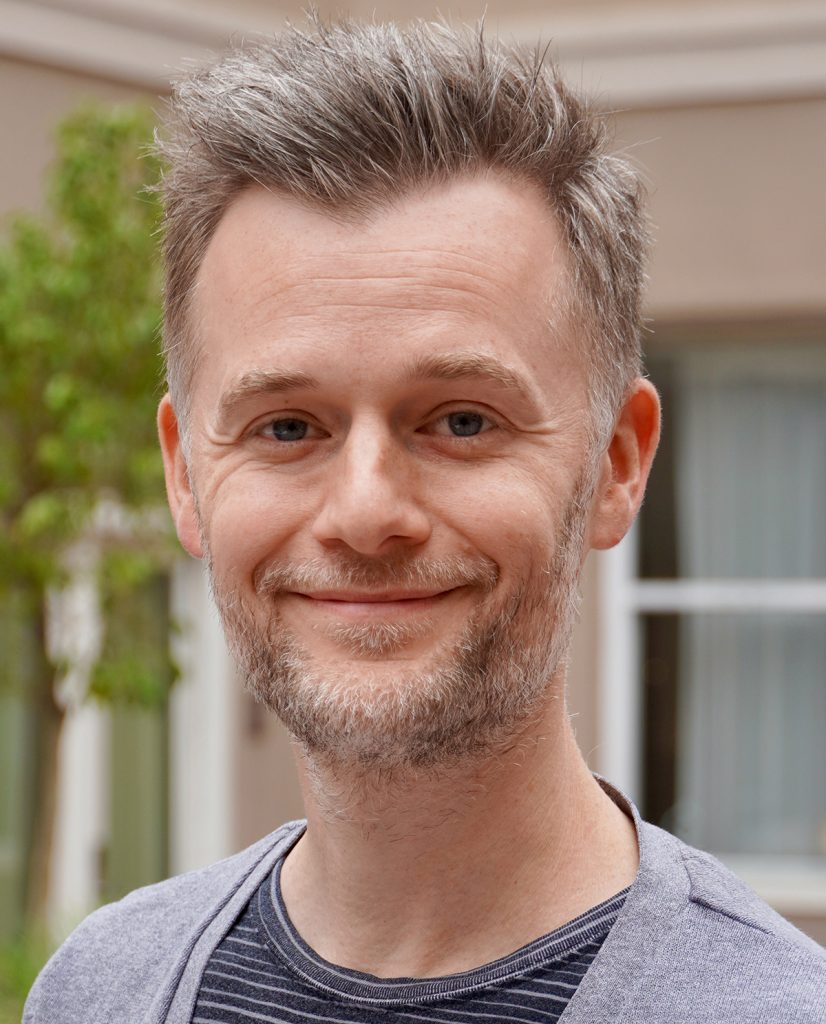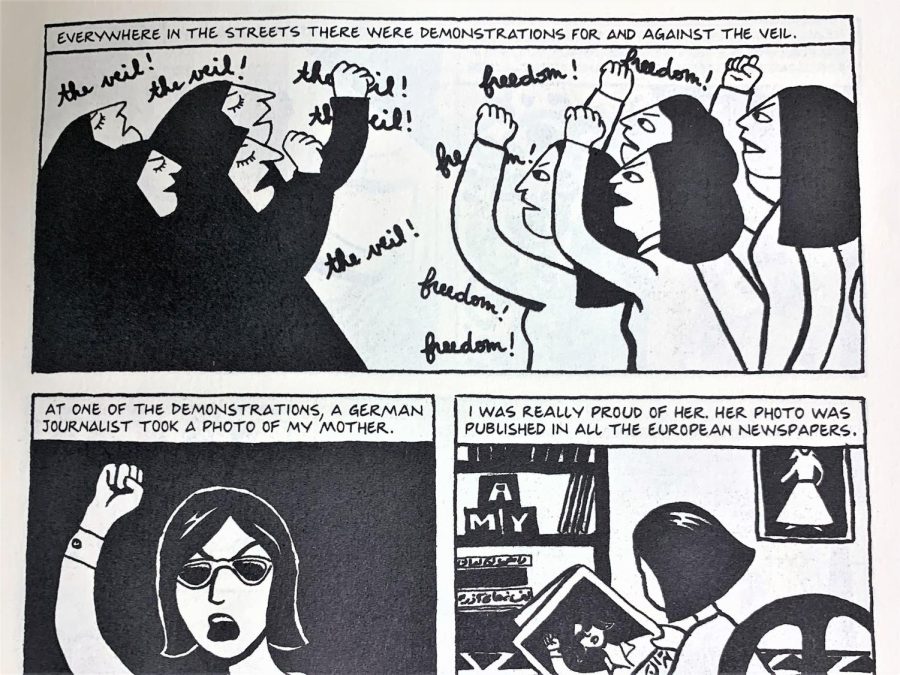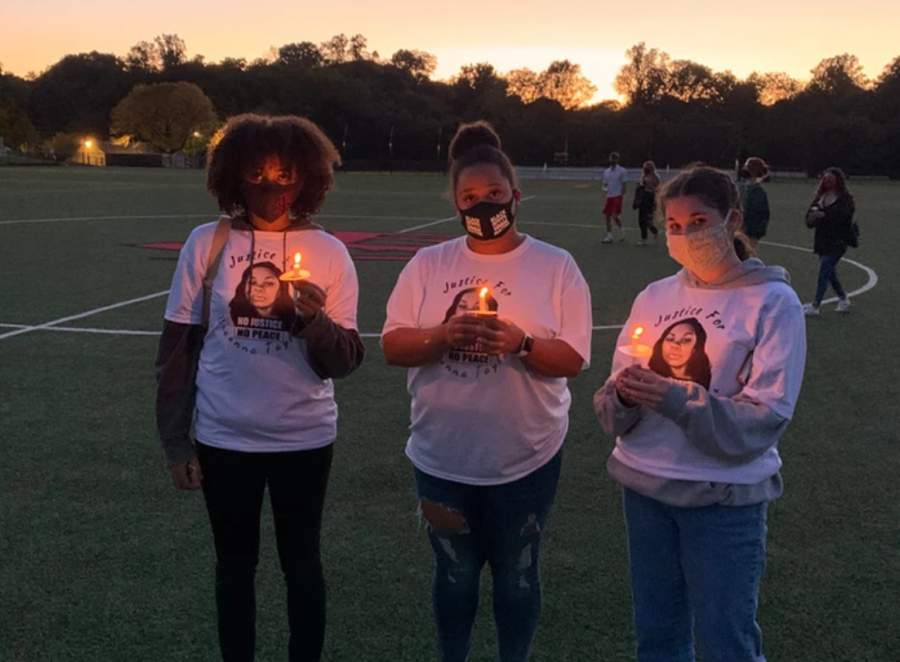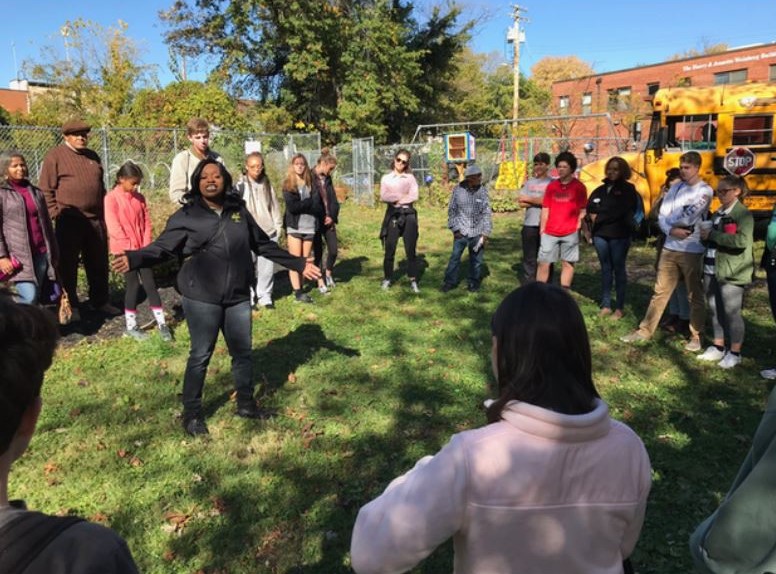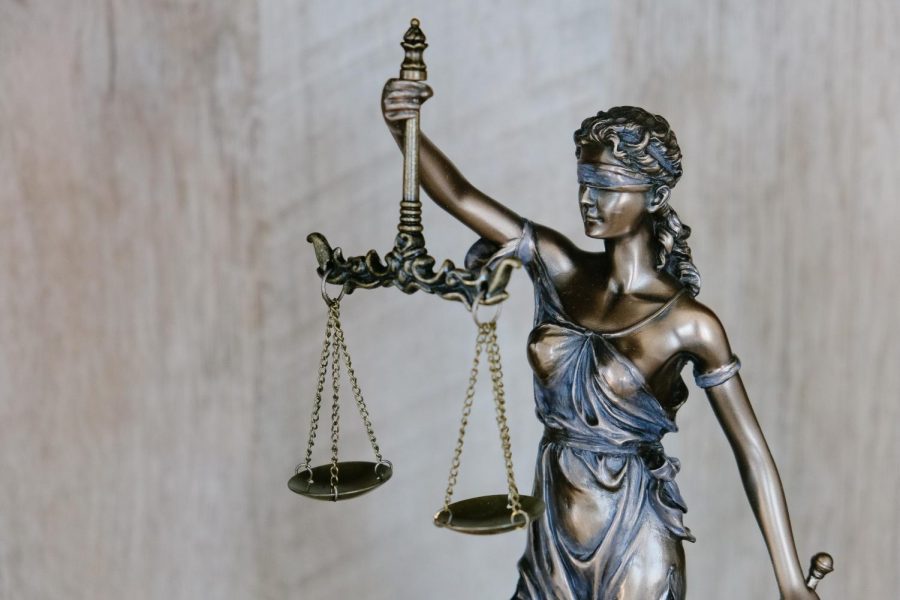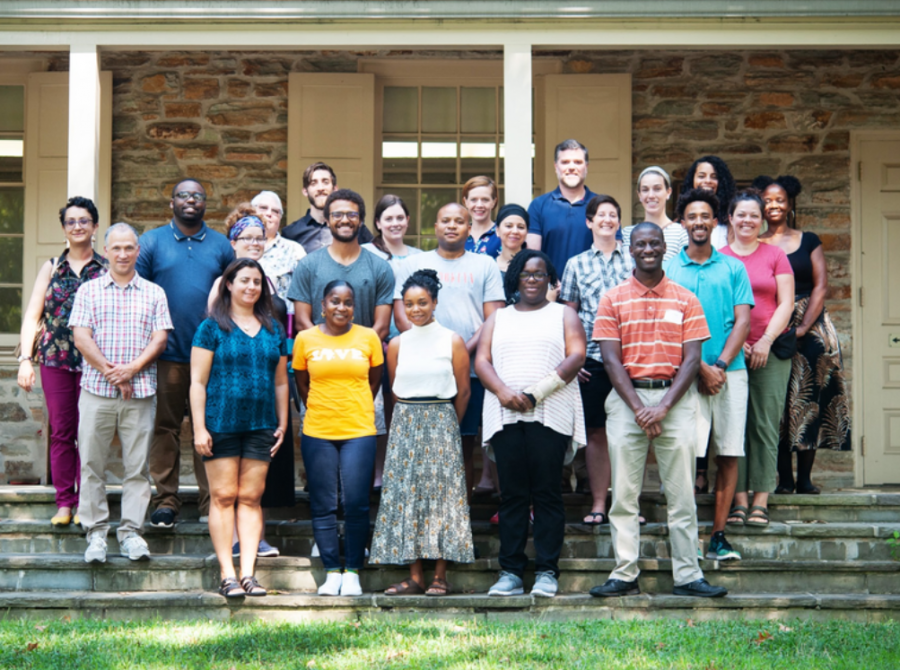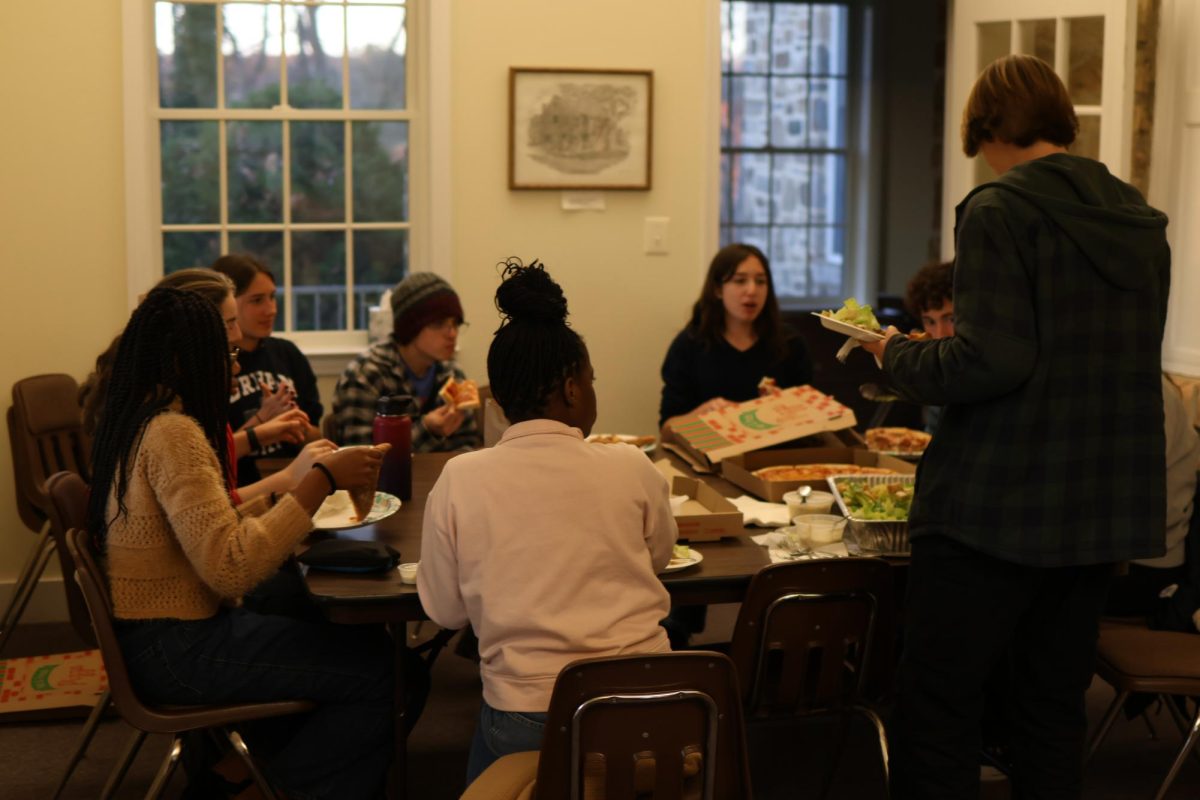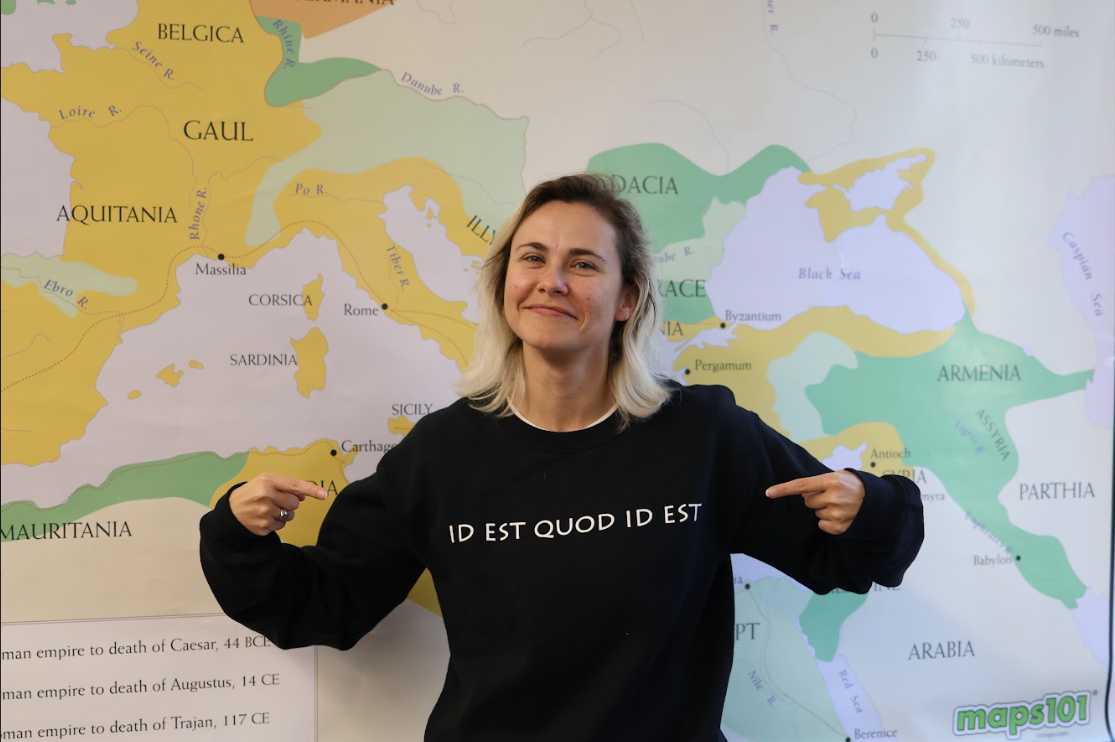Earlier this year, Friends School welcomed evangelical activist Sam Heath to campus. A friend of Latin teacher Stella Bowman, Heath spoke at Collection and with a small group of students in the Controversy in Dialogue club. A former history teacher and longtime advocate for restorative justice, he spoke about his work seeking to abolish the death penalty and challenging systems of harm rooted in fear.
Now working with the Equal Justice USA evangelical network (EJUSA), Heath draws on his personal experiences, his Christian faith, and the stories of incarcerated people to call for a justice system focused on healing rather than punishment. In his Collection talk at Friends, Heath spoke about the injustices of the death penalty, and the importance of restorative justice to minimize violence in the US. After his talk, we sat down to continue the conversation.
Quill: How did you first begin to question the morality of the death penalty and the justice system you grew up with?
Heath: My parents and I progressed together [from being pro-death penalty to against it]. They read the stuff I was learning, and we kind of discovered this journey together.
Quill: Was there a specific moment or experience that pushed you toward abolitionist work?
Heath: Yes, there were three moments. First, teaching about these systems basically called me to respond. I couldn’t just teach about capitalism and white supremacy without addressing how it’s still messing things up today. Then, visiting my best friend in prison showed me how traumatic the system is. He became a number, totally dehumanized. The isolation, the punishment—I realized that was actually the design. The whole system was set up to punish people, not help them get better. Finally, being in Charlottesville before and after the Unite the Right rally completely changed how I understood the connection between theology and justice issues in America.
Quill: What do you believe about it now?
Heath: How you view the death penalty basically shows what you think should happen when people hurt each other. On a bigger scale, it shows what kind of society we want—one based on punishment or one committed to healing and making things right.
Quill: How do you advocate for that?
Heath: I’d present to pastors and churches all over the country, showing them biblical reasons for justice reform. My goal was to get them to actually do something. Being a former teacher helped me explain complicated stuff. [Working together, we] got legislation to end solitary confinement—they call it ‘restorative housing’—through both the house and senate in Virginia. It’s sitting on Governor Youngkin’s desk right now. [And] in South Carolina, when they wanted to start executing prisoners by firing squad, I got invited to speak at press conferences. We show up at hearings and help communities organize against these policies.
Quill: How do personal relationships influence your work?
Heath: I’ve visited Tremaine Wood at Oklahoma State Penitentiary. He’s been on death row for decades, but seeing how his life has changed makes me believe even more that people are more than the worst thing they’ve ever done. Today, I write to people on death row, seeing them as actual humans, not just cases. Too many have killed themselves or been executed without anyone acknowledging they were people.
Quill: What keeps the death penalty going despite declining public support?
Heath: “The death penalty is basically an easy political tool. Even though most Americans don’t support it anymore, we still see about 25 executions every year. Ron DeSantis executed 6 people during his presidential campaign to look tough on crime. During his presidency, Trump executed 7 people on federal death row as a show of force and has talked about expanding the death penalty for people who kill police and immigrants who commit crimes. The death penalty sticks around because people are scared of alternatives. People don’t know what else to do when serious crimes happen. Almost 50% of violent crimes don’t even get caught, but people are afraid to try something different.
Quill: What kind of justice system do you believe in?
Heath: We know what actually works. The death penalty fails—it’s racist and expensive. Restoration works through real accountability. The first command in the Bible is ‘do not fear.’ Christians shouldn’t let fear guide them or support policies that use fear for political power. The way courts work makes people lie to protect themselves rather than admit what they did. Real healing needs honesty and focus on fixing what’s broken. Instead of ‘what went wrong and who to punish,’ we should ask ‘what happened and how can we make it right?’ This works everywhere from schools to courts.
Quill: How can people—especially students—get involved in anti-death penalty or restorative justice work?
Heath: EJUSA is a national nonprofit focused on community safety and ending state violence like the death penalty. People can sign up for our email list on our website to get involved.
Other resources if you’d like to get involved in anti-death penalty work:


